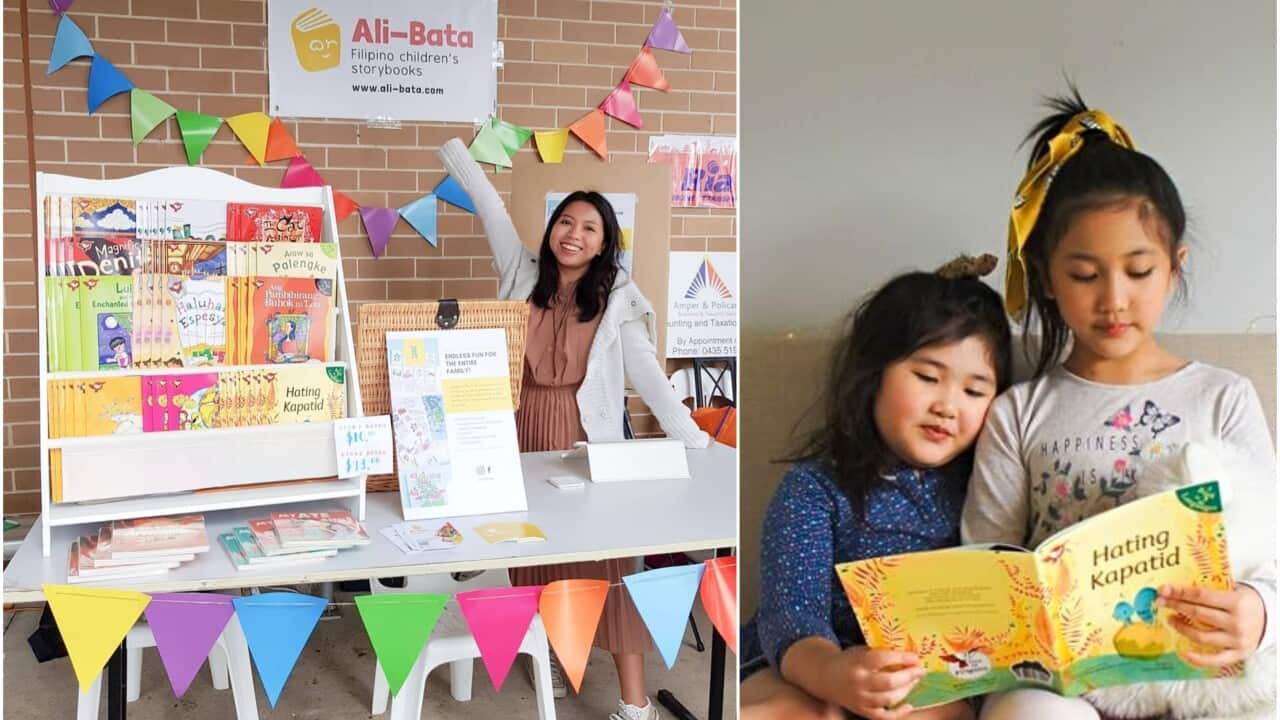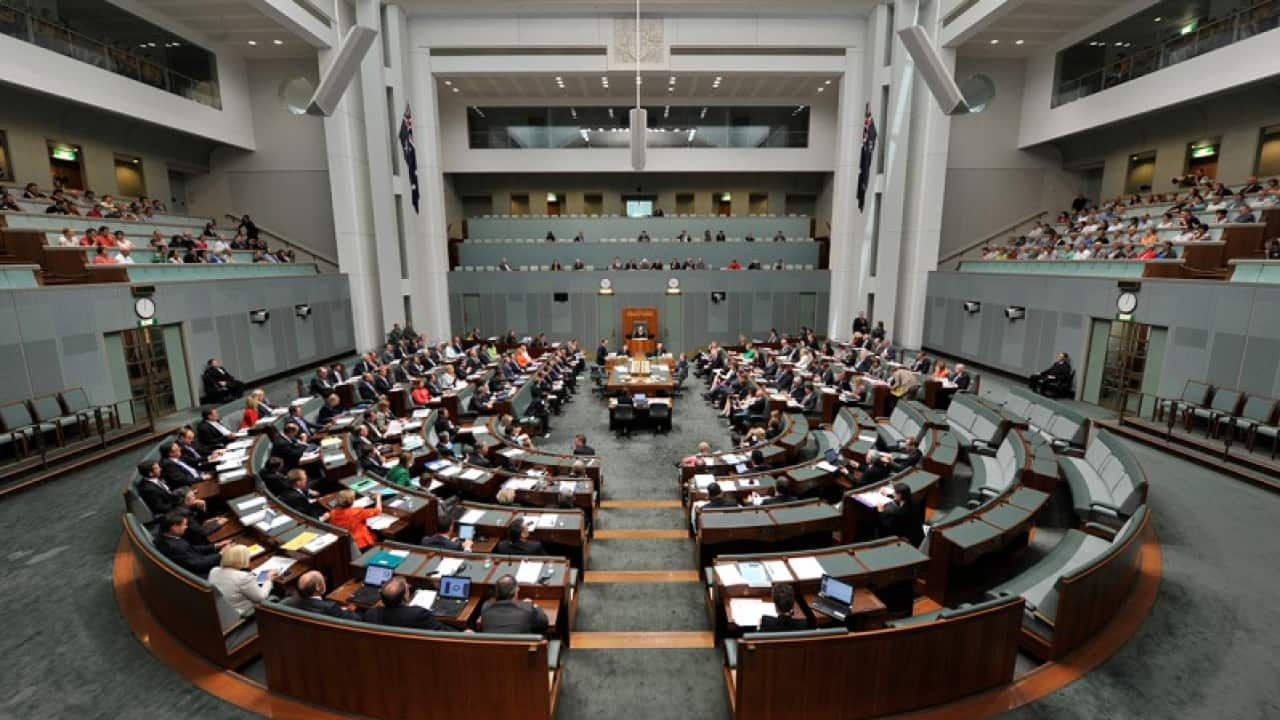"When I was a kid, I had this weird way of being nationalistic. I would look at the newspaper and check on the exchange rate. I was rooting for our Philippine peso," saad ng Manila-based artist na si Taipan Lucero.
Ang pagmamahal ni Taipan para sa Pilipinas ay nagdala sa kanya sa adhikaing isulong ang dating kinalimutan ng sistema ng pagsusulat, ang Baybayin.
Muling pagbabalik
"The Baybayin is an ancient writing system used by the Tagalogs. We had several - like the Badlit of the Cebuanos, the Surat Mangyan. The Baybayin is not an alphabet. It's an alphasyllabary, meaning the letters are consonants accompanied by a vowel."

Ang patinig na kasama ay ang 'a' na nagbabago sa ibang patinig kapag nilagyan ng kudlit sa ibabaw o ilalim ng character. Ginagamit ang vowel-killer kapag tinatanggal ang patinig.
"The rules are very easy. You spell a word how you pronounce it. The way we speak our alphabet now - ah, ba, ka, da - I believe that's based on Baybayin."
Habang ang Baybayin ang pokus na ng mga gawa ni Taipan, una siyang natuto ng kaligrapiya sa Japan.
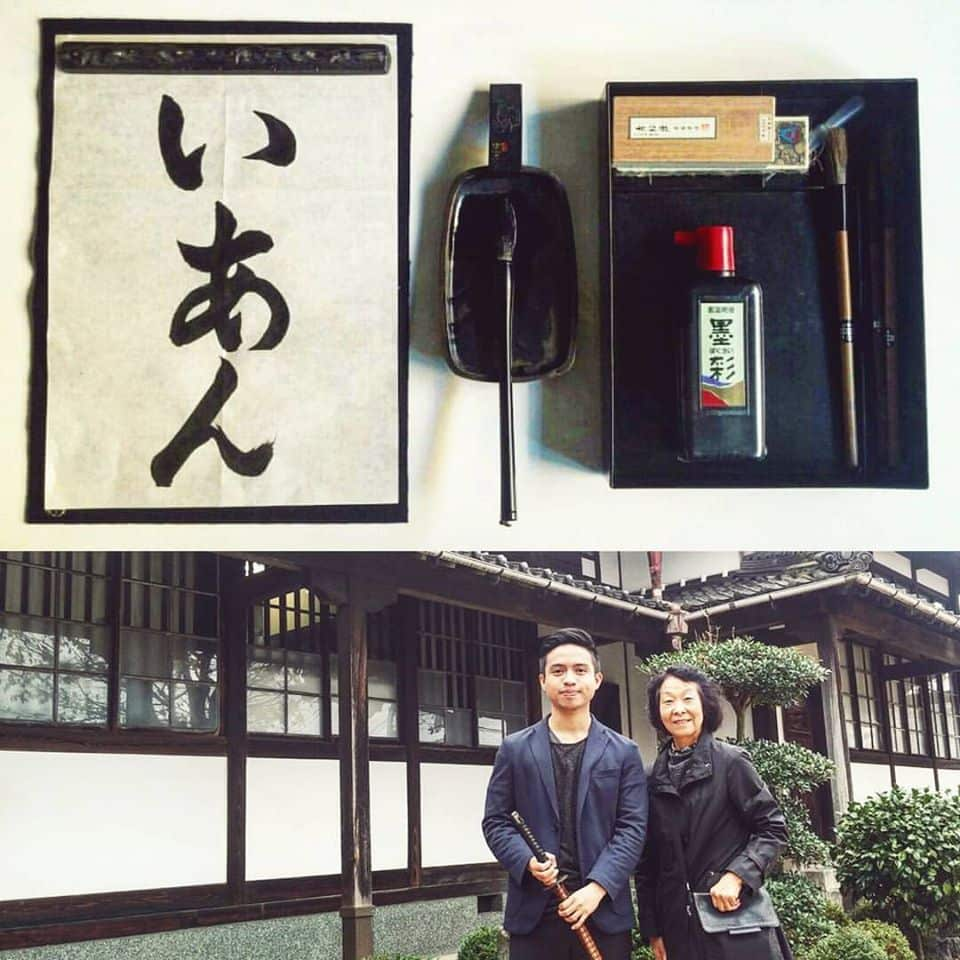
"While working as a designer in Japan, I was required to learn Shodo or Japanese calligraphy. While I was practising Shodo, I experienced firsthand how the Japanese love and appreciate their culture. Every step of the way - from preparing the ink to how you handle the brush, how you sit down, how you breathe - everything is considered an art form,. I was inspired by that. If the Japanese can give that amount of appreciation to theirs, why can't we to our own?"
Para sa sariling atin, bumalik si Taipan sa Pilipinas upang pag-aralan at isulong ang Baybayin.
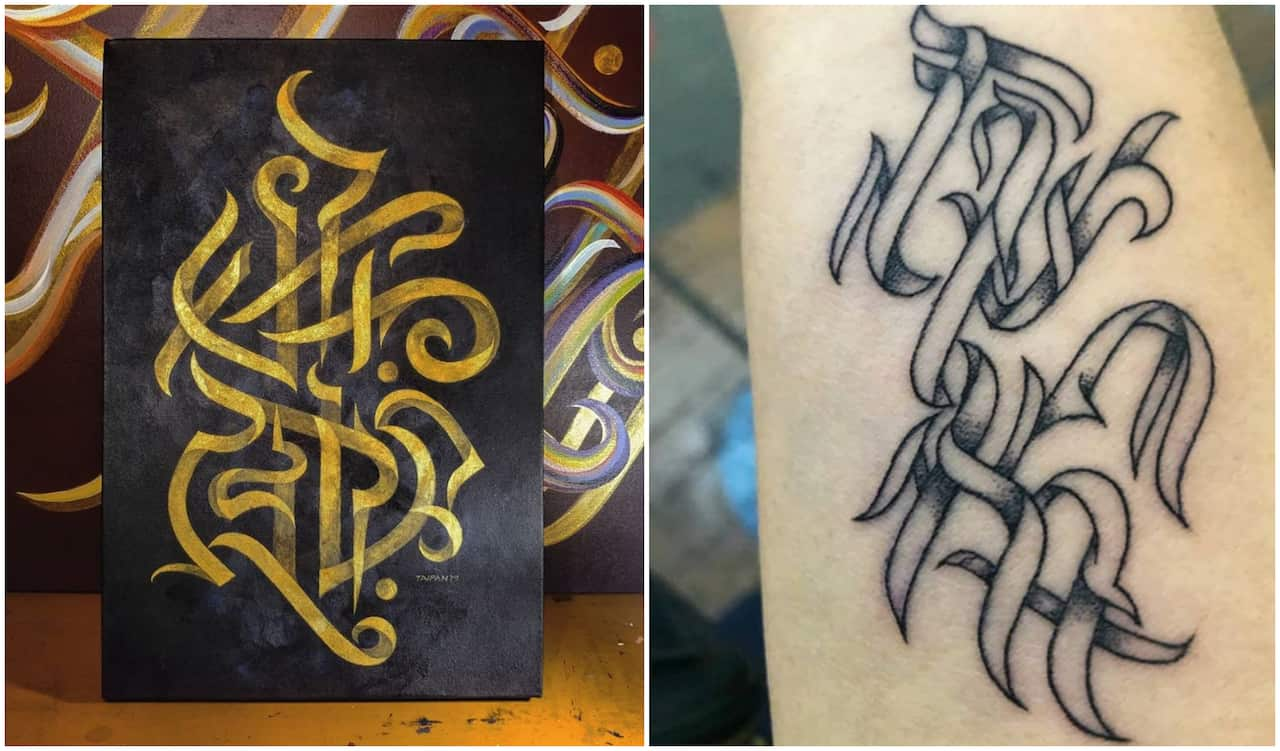
"My advocacy, CalligraFilipino, is a portmanteau of calligraphy and Filipino. I get inspiration from ancestral art as well..like the lingling of the Ifugao or fertility charms and, the okir of the Maranao which are curvilinear vine-like, leaf-like forms. I try to combine these elements with the Baybayin. I developed my own art philosophies as well, like kapwa (association of letters), katuwiran (straightness of the line) and kasiguraduhan (sureness of the stroke)."
Kasamahan sa kasiguraduhan ng kanyang mga guhit ay ang kasiguraduhan niya ukol sa kung ano ang sinasabi ng Baybayin ukol sa mga sinaunang Pilipino.
"Victors write history and what's sad about it is, through their eyes, we were savages and uncivilised. Through Baybayin, we know that our ancestors were literate. They knew how to read and write. Almost all of them did - didn't matter if they were male or female, adult or child. Everyone was equal. I think it's important to understand that we weren't 'saved' by the invaders."
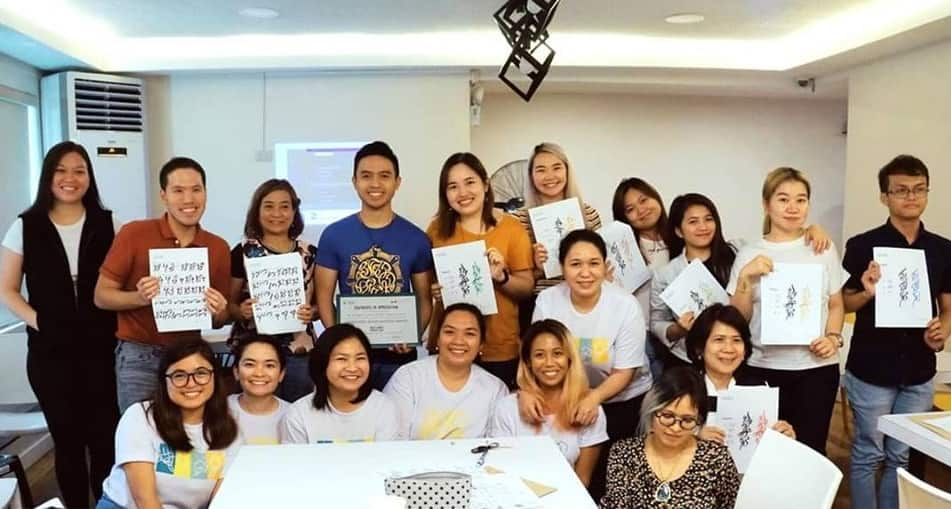
Itong pagkakaintindi na ito ang nagtulak kay Taipan na ipaalam sa kabataan ang ukol sa Baybayin.
"Through what I do, I am able to create a teaching moment that spreads, especially through social media. It may spark some kind of interest and start a conversation about Baybayin. This leads to a heightened sense of pride in our culture. If we are not anchored on how rich our culture was even before, we can easily abandon it for another."
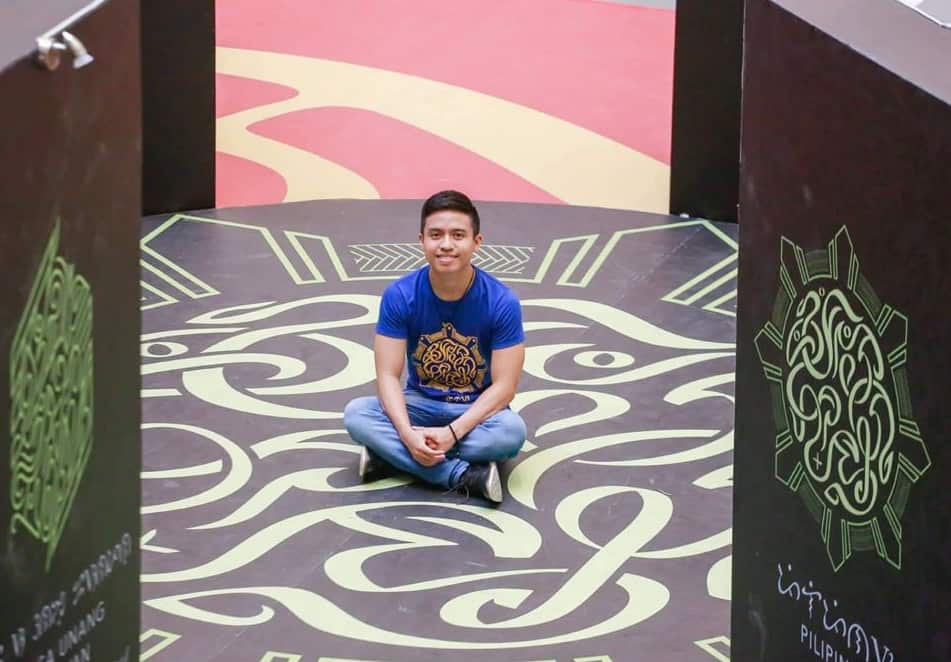
Ang pagsaklolo sa nawawala
Ang isa pang naniniwala sa yaman ng kultura ng Pilipinas ay ang linguist at Australian National Univesity PhD student na si Kristina Gallego.
"We had our own sophisticated technology. If you look at the evidence of language, you can see how intricate this knowledge is - seafaring, agriculture, Baybayin and others. Not all ethno-linguistic groups have writing systems, but it doesn't mean they weren't educated on the ways of the world. I think we're going back to realising how important these indigenous knowledge systems are."
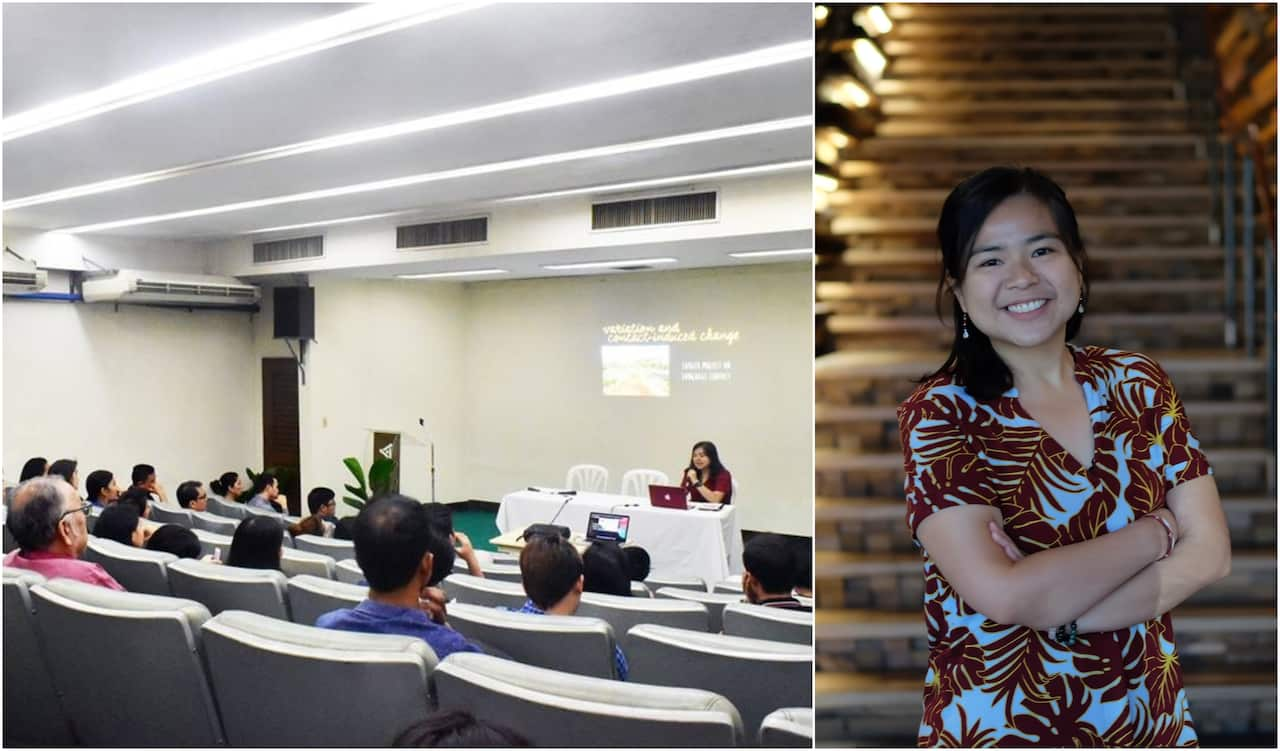
Saad niya na mahalaga pa rin ang mga indigenous knowledge systems ngayon.
"We have 175 living languages in the Philippines. Studying the history of these gives us a good understanding of what happened in the past. One of the interesting things would be about how we view relationships, how deeply rooted it is in our culture. For example, we see extended kin as practically our parents so there would be some languages wherein the term for mother, father, uncle and auntie would be the same."
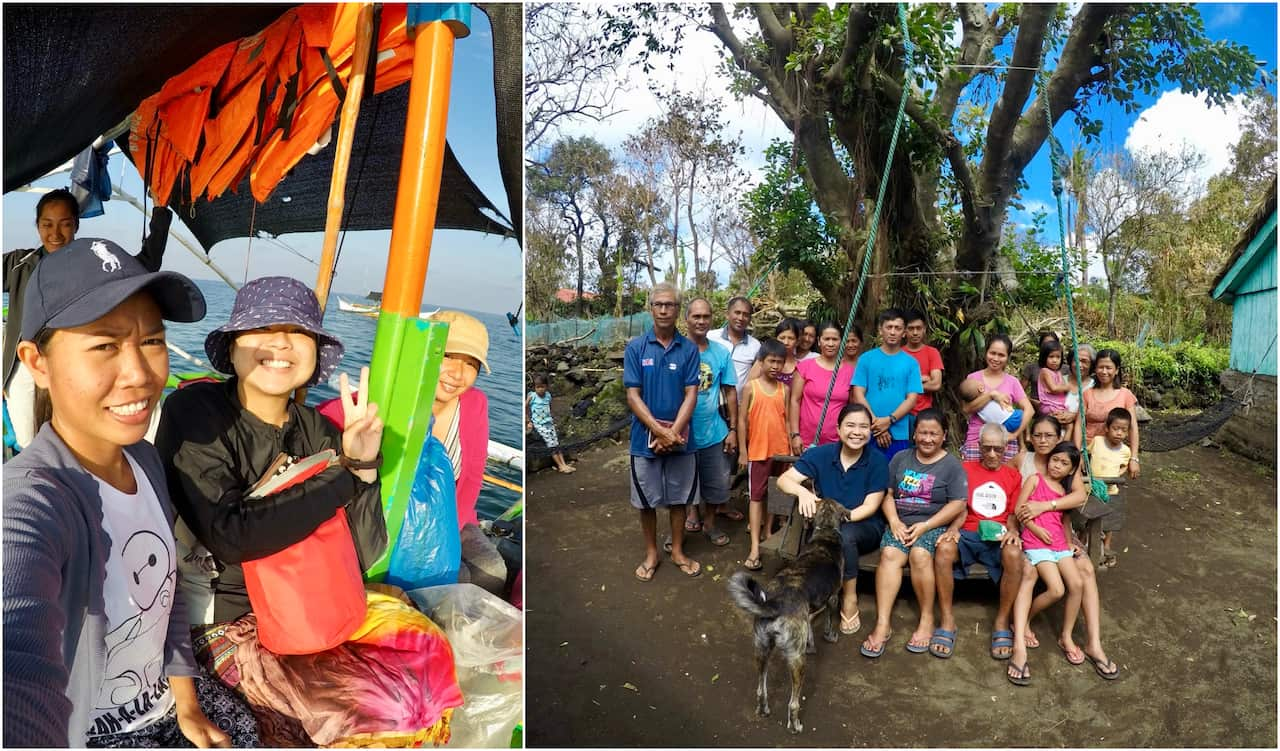
Ayon sa kanya, habang pinipili ng maraming Pilipino na gumamit ng mga wika gaya ng Tagalog, Cebuano at Ingles, "The worrying issue is we are losing indigenous languages by the minute. We have scripts, like the Mangyan script, that are endangered. We need to be aware of this and look for ways to revitalise them."
Upang mabuhay muli ang mga indigenous languages sa buong munda, dineklara ng nited Nations General Assembly ang 2019 bilang International Year of Indigenous Languages. Ang 2022-2032 sy dineklara namang International Decade of Indigenous Languages.
Para kay Kristina, habang mahalagang magamit ang mga indigenous languages natin, dapat alam din ng gumagamit na itong mga ito ay "beyond tools for communication. They help us connect with our past, identity and ancestry."
BASAHIN / PAKINGGAN DIN


